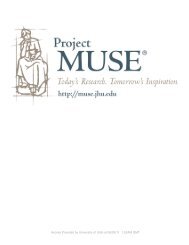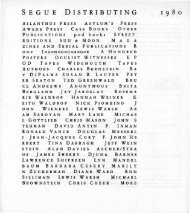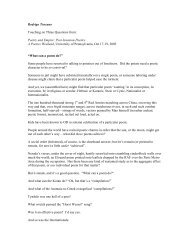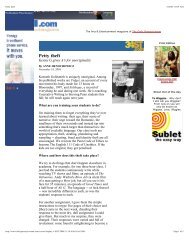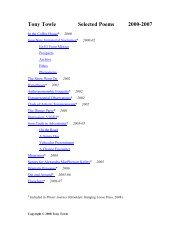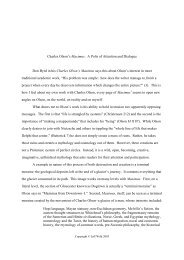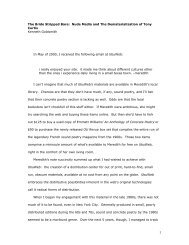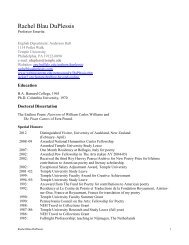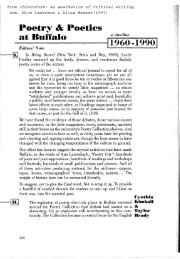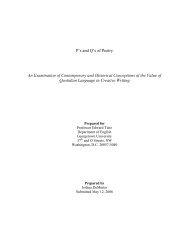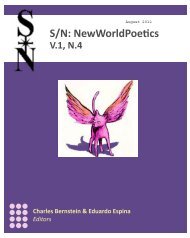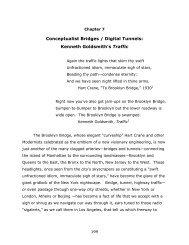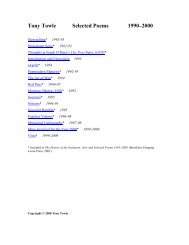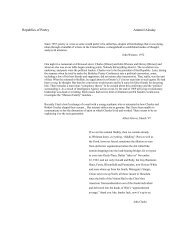Preface - Electronic Poetry Center
Preface - Electronic Poetry Center
Preface - Electronic Poetry Center
Create successful ePaper yourself
Turn your PDF publications into a flip-book with our unique Google optimized e-Paper software.
From: Kali Tal<br />
Subject: Re: apex of the m…<br />
I’m outside both the traditional academic and literary poetry circles. Until Joe<br />
Amato introduced me to the work of the Language Poets, I’d never heard them.<br />
I like Joe’s work (that’s why I publish it), but my longest-lasting literary<br />
affections lie with "movement" poets, primarily feminist and/or African<br />
American and/or war veteran writers who see themselves and their work as<br />
inseperable from their politics and their activism. My perspective on the whole<br />
apex of the m debate is shaped by a general distrust of manifestos which seem<br />
to be substitutes for action, or which are taken as actions in and of themselves.<br />
I’d like to respond to some of eric pape’s comments in that spirit:<br />
>every revolution, including any poetry that pretends to be fully fulfilled<br />
> revolutionary poetry, is written in language.<br />
I am not sure that this is true. In extremity, language is a luxury that many<br />
cannot afford. Violent revolutions (and perhaps most acts of physical violence)<br />
are not written–that is specifically what makes them violent; pens are not<br />
swords, however much the revolutionary (or reactionary) poet might wish that<br />
they were, might yearn to make language strike like a blow. My particular<br />
critical speciality is "literature of trauma"–specifically, the literature of<br />
"survivors" of man-made violence (Holocaust, combat, rape, etc.)–and I have<br />
found that a characteristic spanning every literature of trauma which I have yet<br />
uncovered is the agonizing tension between the failure of language ("You can’t<br />
understand!") and the desperate need for language to suceed (You must<br />
understand!). Revolutionary poets yearn to write with such strength that their<br />
audience is traumatized as they have been traumatized (Jones/Baraka raging<br />
that "poems are bullshit unless they are/ teeth or trees or lemons piled/ on a<br />
step," wanting his own poem to be a machine gun, reduced to helpless<br />
ratatatting; the anger is real, the danger behind the poem is real, but the poem<br />
can never be real in the sense Baraka desires it to be).<br />
There was, last year, a lengthy discussion of "terrorist" poetics/poetry on the<br />
[Technoculture] list–some of you will remember. It seems to me that both<br />
"terrorist" and "revolutionary" poetry are impossible constructions unless one is<br />
talking about them as documentary (at one remove) rather than actual (the thing<br />
itself). Soldiers who write or talk about combat state unequivocally that



